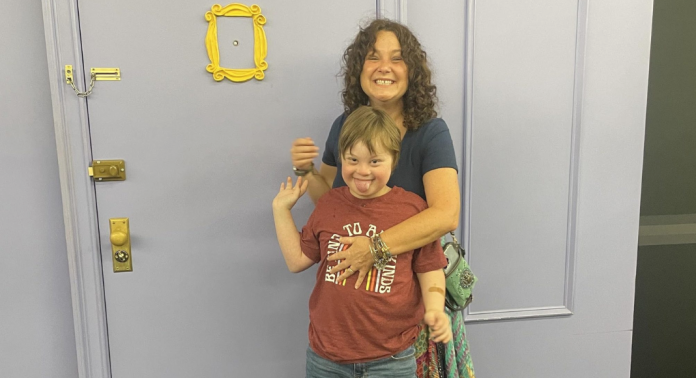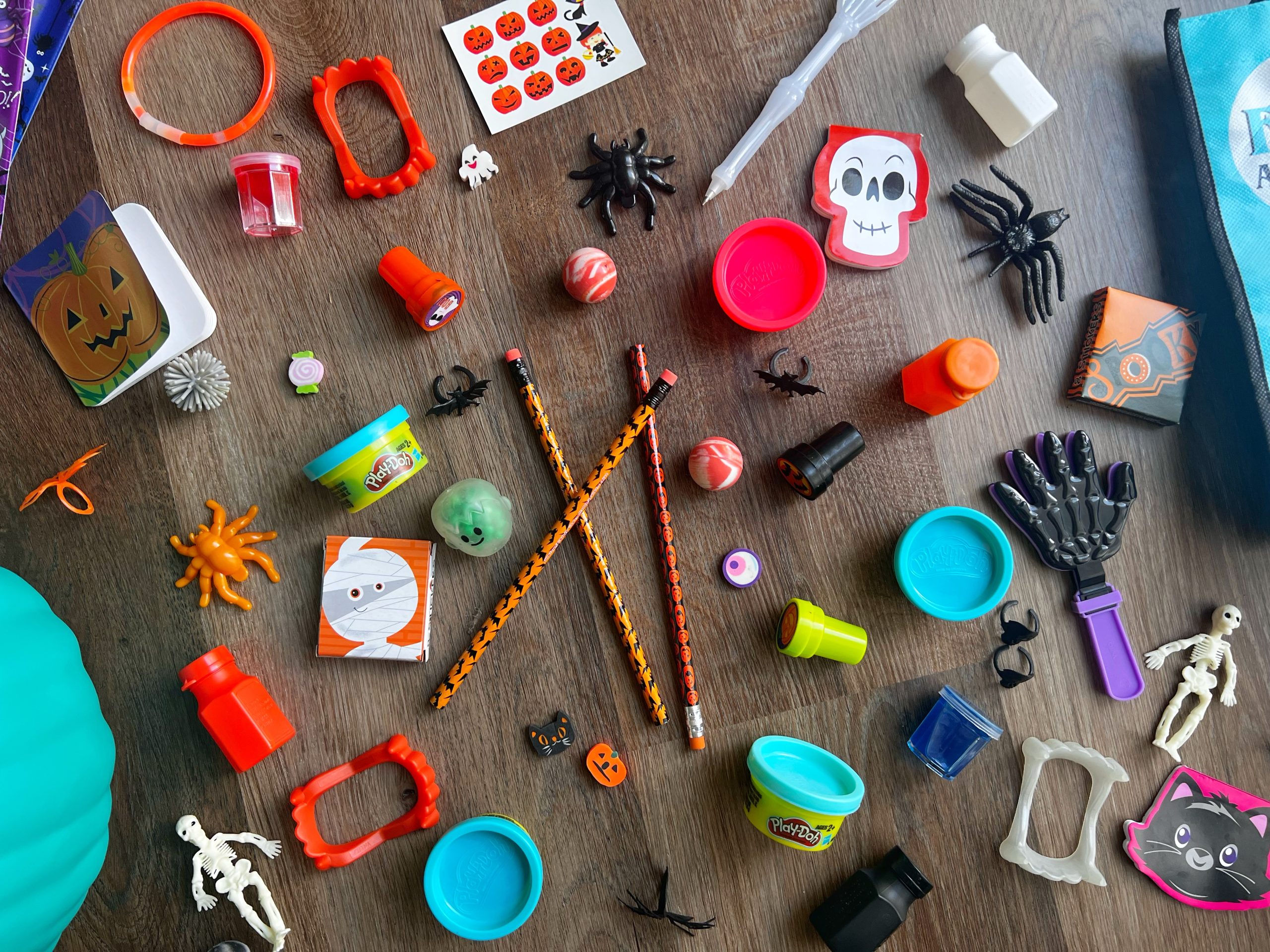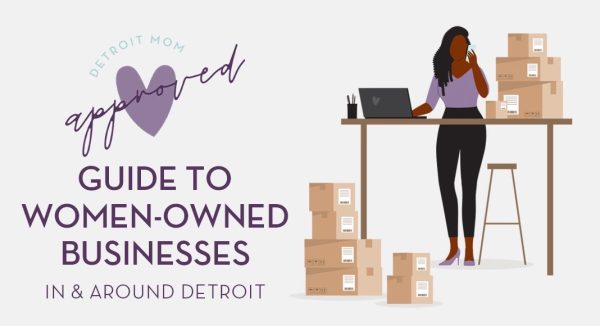Disclaimer: The following post outlines the writer’s personal experience with navigating food allergies. It is not intended to act as medical advice. As always, please consult your doctor with any questions about managing food allergies.
Costumes, candy, and a cauldron of fun. For many families, Halloween is a time for kids to let their imaginations run wild and indulge in sweet treats. But with peanut and tree nut ingredients seemingly lurking in just about everything from chocolate bars to caramel and other candy-coated confections, Halloween can feel a bit more hair-raising for moms of kids who suffer from certain food-related allergies.
My five-year-old son was diagnosed with a severe peanut and tree nut allergy at just six months old. Since then, Halloween has become a delicate balancing act, where we enjoy the sugar haul while dodging the candy culprits that could send us to the emergency room.
 Still, I’ve learned not to let the fear of food allergens be the boogeyman that haunts our Halloween spirit. My son absolutely loves this time of year. The excitement of dressing up and trick-or-treating is just as thrilling for him as it is for any other child. With a sprinkle of creativity and a healthy dose of vigilance, I’ve found ways to keep him safe, while ensuring this candy-laden season is all treats–and no tricks.
Still, I’ve learned not to let the fear of food allergens be the boogeyman that haunts our Halloween spirit. My son absolutely loves this time of year. The excitement of dressing up and trick-or-treating is just as thrilling for him as it is for any other child. With a sprinkle of creativity and a healthy dose of vigilance, I’ve found ways to keep him safe, while ensuring this candy-laden season is all treats–and no tricks.
If you’re gearing up for Halloween with a child who has allergies to peanuts, tree nuts, or both, here are some tips to help keep your little goblins and ghouls safe while still having a fang-tastic time.
The Art of Vetting Tricks, Treats, + Nut-Free Eats
Before my son gets his hands on any Halloween goodies, we go through a sorting process. It’s not just about separating the chocolate from the gummies; it’s also about ensuring every treat is nut-free. I always remind him not to eat anything until I’ve had a chance to vet it thoroughly. This crucial step helps us avoid any scary surprises.
My son helps me check each piece while I explain what to look for. It’s a great way to involve him and teach him about his allergies in a relaxed setting. For us, it’s more like playing detective–every wrapper must be carefully inspected as if we’re part of the CSI: Candy Division.
Peanuts and tree nuts can be sneaky, hiding in treats where you’d least expect them. Just because the ingredient list doesn’t mention peanuts doesn’t mean the candy is safe; that’s where the real challenge lies. It’s also worth mentioning that the practice of vetting Halloween candy and treats is a good best practice for all parents and caregivers–even if your child doesn’t have a food-related allergy.
Pro tip: Set up a “Treat Sorting Station” after trick-or-treating. Use a few bins or bags labeled “Safe,” “Check,” and “Not Safe.” As you go through the candy, help your child sort each item into the appropriate bin. This hands-on approach makes it easier for kids to understand which goodies are okay and reinforces the importance of checking labels together. For any questionable items, you can take the time to research them together later.
Cross-Contamination: The Sneaky Saboteur
Even when peanuts or tree nuts aren’t listed as ingredients, cross-contamination can sneak up like a ghost. Candy made in the same facility as peanut products can still harbor traces of nuts, triggering serious reactions in some kids. That’s why candy labels are my best friend–every single wrapper gets meticulously inspected. I’m not just on the lookout for the obvious “peanuts” in the ingredients; I also keep an eye out for phrases like “may contain peanuts” or “processed in a facility that handles peanuts.” Depending on the severity of your child’s allergy, those tiny words can make all the difference between a safe snack and a potential trip to the hospital.
When it comes to Halloween candy, it’s important to remember that even if it’s individually wrapped, there could still be hidden dangers. If nut-free candy has been sitting near or stored in the same bucket as peanut-filled goodies, cross-contact can occur, as plastic wrappers can sometimes allow tiny particles to transfer. This is why the one-bite rule (mentioned below) is essential; it can help minimize the risk of a serious reaction.
However, since it often seems that a majority of candies and processed foods are made in facilities that handle peanuts, it’s crucial to rely on your own judgment when determining whether the risk is acceptable.
Pro tip: Create a “Safe Candy List” together with your child. Write down the treats that are nut-free and safe for them to enjoy. This way, your kiddos have a reference for future holidays or events and feel empowered to choose their favorite candies confidently. You can also check company websites and reach out to manufacturers to learn about their allergy policies.
Educating Your Children on Their Allergies
As children grow and become more independent, it’s essential for parents to teach them how to protect themselves, especially regarding their food allergies. My son, though still young, knows to ask, “Does this have nuts?” before eating anything.
We’ve made a habit of reading labels together, helping him become familiar with which brands and wrappers to look out for. While his nut allergy isn’t airborne, he understands that if something smells off or feels unfamiliar, it’s better to err on the side of caution and not eat it.
Helping kids understand their allergies is essential as they learn to navigate the world. By creating an environment where they feel safe speaking up, parents can empower their children to handle social situations with more ease, so food allergies don’t hold them back from enjoying life.
Pro tip: Engage in fun educational activities with your children that teach them about allergies. Consider crafting a colorful “Allergy Awareness” poster together or creating a game where they identify safe and unsafe snacks. These projects reinforce important safety lessons while allowing them to express their creativity.
Peer Snacks + Halloween Parties
It’s crucial for children with nut allergies to be aware of peer snacks during school parties or Halloween gatherings, where they’re likely to come across various treats brought by classmates, family, or friends. Homemade goodies can be especially tricky, though, since their ingredients might not be clearly disclosed.
Again, teaching kids to ask questions and be cautious can help them feel more confident in these situations. A great strategy is to pack a separate bag of safe treats for your child. This way, they can indulge alongside their friends without worrying about allergens.
Additionally, it’s essential to communicate allergy concerns to teachers, family members, friends, parents of classmates, and caregivers attending these gatherings. Ensuring that everyone understands the importance of vigilance can help create a safer environment for your child.
Pro tip: Develop a personalized “Allergy Action Plan” with your child that includes a list of their specific allergies, safe foods, and steps to take if they accidentally consume something harmful. This plan can serve as a valuable tool in various situations, such as school events, family outings, or play dates. It can also help ease the concerns of babysitters or caregivers by providing clear guidelines.
Take Small Bites: A Sweet Safety Tip
When it comes to enjoying Halloween treats, taking small bites can significantly enhance safety, especially for children with nut allergies. This practice encourages kids to be more mindful of what they’re consuming, allowing them to better assess each item for potential problem ingredients.
Smaller bites allow for easier identification of any unusual textures or flavors that may signal a potential allergen. This approach also promotes mindfulness, helping kids enjoy their treats without rushing, which can lead to careless nut consumption mistakes. And, if a child feels something is off, they can communicate it more easily without having consumed a large amount.
Pro tip: Implement the “One-Bite Rule” by prompting kids to take just one small bite at a time and wait a moment before taking another. It’s a simple habit that can help keep little ones safe while they enjoy their candy collection.
Nut Allergy Warning Signs: What to Watch For
Peanut and tree nut allergies can be incredibly dangerous, with reactions ranging from mild to severe. According to the American College of Allergy, Asthma, and Immunology (ACAAI), peanuts are one of the most common food allergens linked to anaphylaxis–a severe, potentially life-threatening condition that demands immediate medical attention. When my son had his first allergic episode, it began with sudden facial swelling, but things escalated quickly. Soon, he was struggling to breathe, his heart was racing, and vomiting set in.
Recognizing these symptoms early is crucial, as anaphylaxis can progress rapidly, and getting help fast is vital. Here’s what I’ve learned to look for:
- Mild reactions: Hives, itching, or redness around the mouth.
- Moderate reactions: Nausea, vomiting, or a runny nose.
- Severe reactions (anaphylaxis): Difficulty breathing, swelling of the throat, or a rapid heartbeat. Anaphylaxis is a medical emergency, and if this happens, I know to administer his epinephrine auto-injector (EpiPen) immediately and call 911.
Having an EpiPen on hand is essential during Halloween–and every day–when your child has severe allergies. I always keep it close by, knowing it’s my best defense if an unexpected allergen sneaks into the mix.
Pro tip: Always carry two epinephrine auto-injectors with you, not just one. Severe allergic reactions can sometimes require a second dose if symptoms don’t improve after the first. Keep them easily accessible, like in a small bag or pouch you can grab quickly, and make sure anyone with your child (friends, family, or other caregivers) knows how to use it. Practicing with a trainer pen at home can help you feel more prepared, so you’re ready to act quickly if needed. Also, be sure to keep your EpiPen prescriptions current, as they do have important expiration dates.
Key Takeaways: Do’s + Don’ts for a Safe Halloween
Do:
- Check all candy before letting your child eat it.
- Teach your child how to read labels and ask questions.
- Bring safe snacks to Halloween parties so they don’t feel left out.
- Join the Teal Pumpkin Project: this initiative encourages families to provide non-food treats alongside candy to help make Halloween safer for kids with food allergies. If you put a teal pumpkin on your porch, it signals to trick-or-treaters that you have allergy-friendly options.
Don’t:
- Don’t assume a candy is safe just because the ingredients look okay–always check for cross-contamination warnings.
- Don’t eat unwrapped or homemade treats unless you’re sure they’re safe.
- Don’t wait to act if your child shows signs of a reaction. Use the EpiPen and call 911 right away if needed.
Mom’s Secret Stash: As a lifelong peanut butter lover, I had to cut back after my son’s diagnosis. However, I admit that I save some of his discarded peanut butter treats for a little guilty pleasure pick-me-up and tuck them away where he can’t find them. If you’re in the same boat, exercise caution and set clear boundaries about when and where you indulge to keep your child protected.
Navigating a nut-free Halloween doesn’t have to be a scary ordeal. With careful planning, clear communication, and a touch of creativity, parents can help their children enjoy treats of the season without any frights.
Ultimately, it’s up to you to take a proactive approach, staying in tune with your child’s specific needs and assessing whether to take any risks based on their unique health situation. The best advice I can offer as a mom to a child with a severe allergy is to trust your instincts and make choices that feel right for your family. Happy trick-or-treating!
For more ideas on keeping your little ones with nut allergies safe and satisfied, check out our post with 20 allergy-friendly school snack and lunch ideas.

















































































